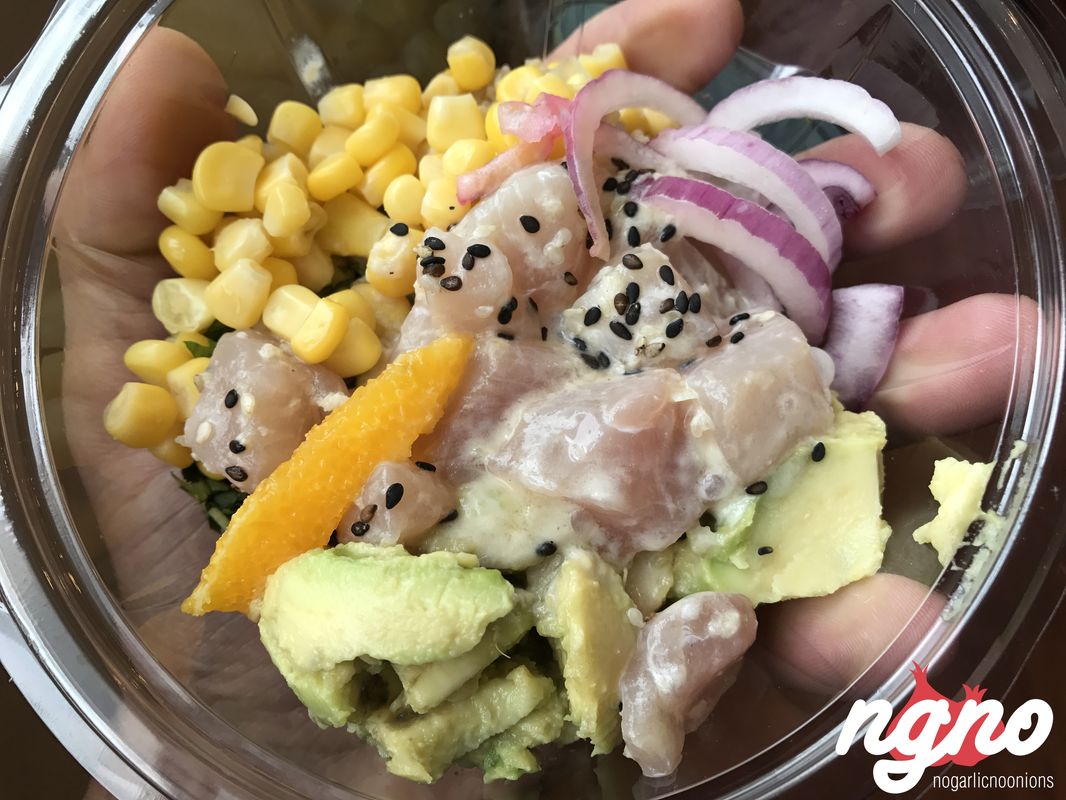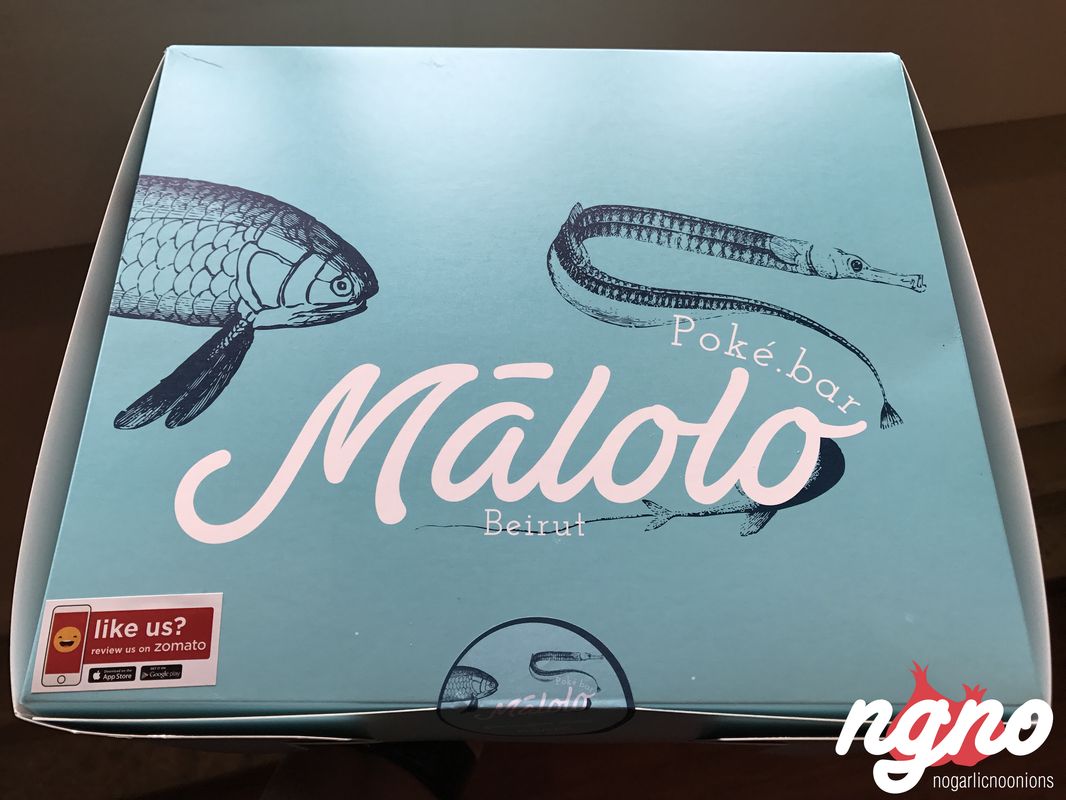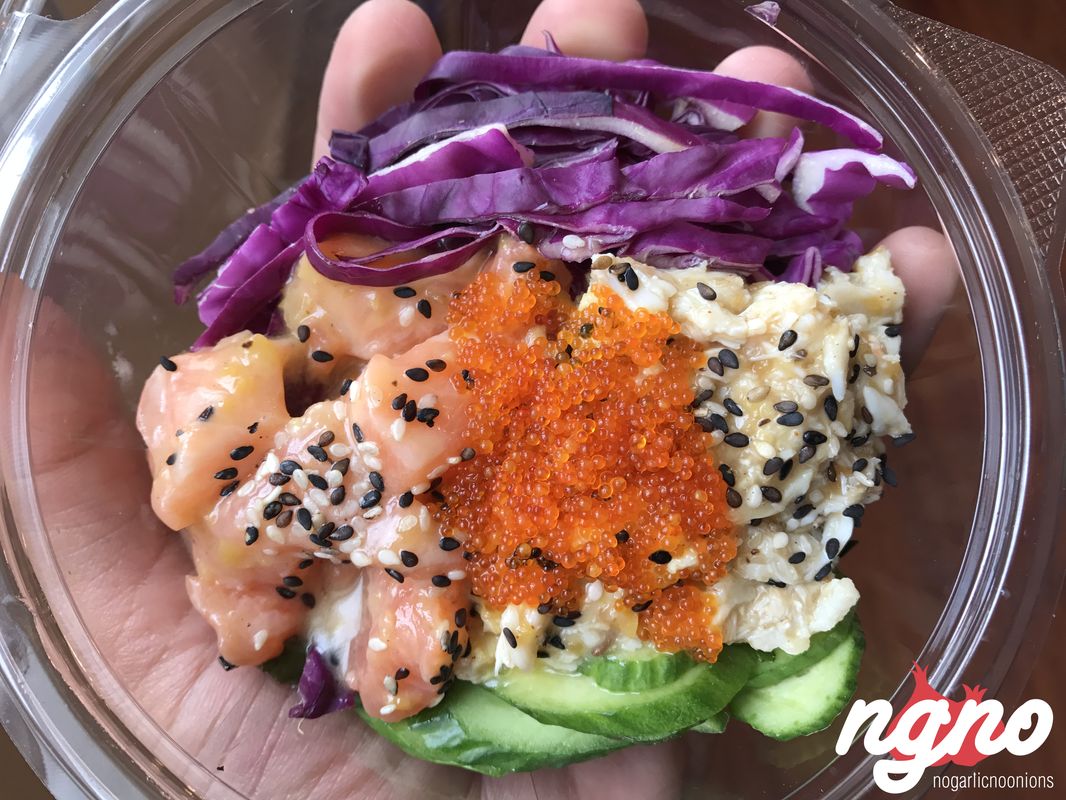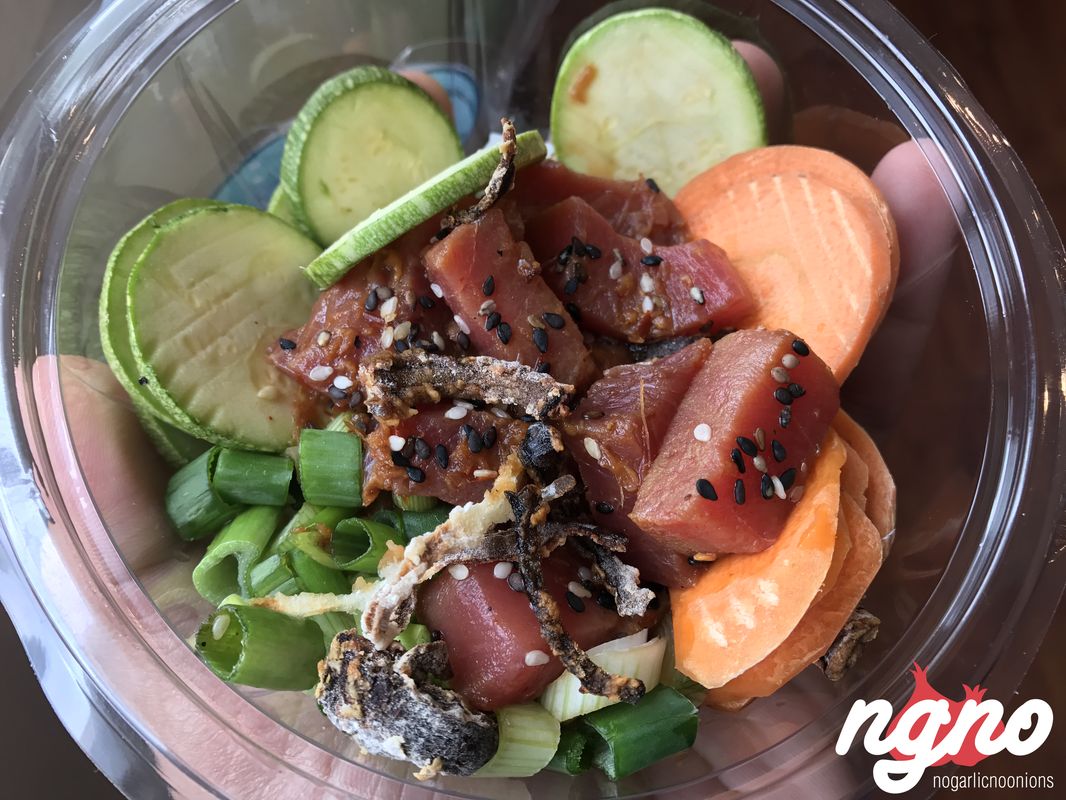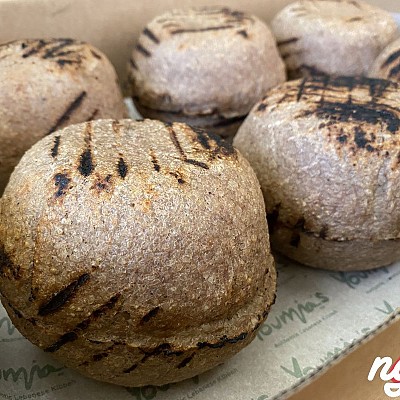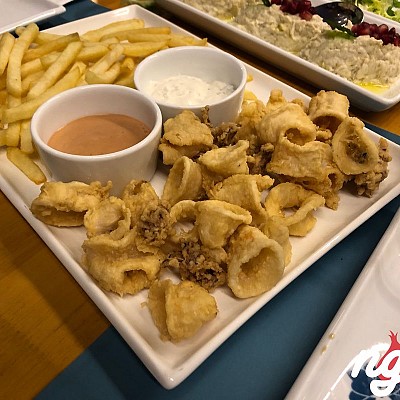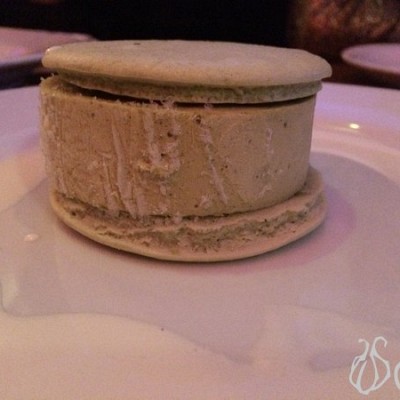Malolo is Beirut's first Poke restaurant inspired by Hawaiian culture. After the huge popularity Poke bowls have achieved in New York and other financial capitals around the world, this fresh seafood bowl has finally debuted in Beirut. I had the chance to try several Poke parlors in New York and I was so excited to try the one in Lebanon: Malolo. Let's taste and see.
I call for delivery - Stephanie gently answers the phone.
Small, medium or large, choose one of the pre-prepared plates or make your own. To ensure delivery, I sent a driver to pick up the boxes; 4 large blue cartons, divided into several compartments which hold the plastic bowl, additional sauce, chopsticks and a set of cutlery. It's a spill free box.
The concept:
- Choose one of three options for the base (rice, seaweed, quinoa)
- Choose your seafood and add as many ingredients as you like, to fit the bowl.
An introduction to Poke: Poke (Hawaiian for "to section" or "to slice or cut") is a raw fish salad served as an appetizer in Hawaiian cuisine, and sometimes as an entree. Poke is not sushi and is certainly not Japanese. Traditional forms are aku (an oily tuna) and he'e (octopus). Octopus poke is usually called by its Japanese name "Tako" Poke, except in places like the island of Ni'ihau where the Hawaiian language is spoken. Increasingly popular ahi poke is generally made with yellowfin tuna. Adaptations may feature raw salmon or various shellfish as a main ingredient served raw with the common "poke" seasonings.
What I expected:
- Warm rice or at least not sticky or heavy.
- Bowls loaded with more food.
- Vegetables, freshly cut, not prepared hours before.
- The ingredients mixed together not set one next to the other like a salad bar.
I ordered four bowls:
- Salmon Poke with fresh salmon, avocado, mango, coriander and jalapeños. Covered with a sweet sriracha mayo, the bowl contains mango, a scoop of avocado cubes and chili pepper on a bed of rice. Sticky rice, dry chili slices, hard unripened mangos... a bit too sweet for my taste. I expected the rice to be softer and the ingredients to be mixed together to balance their flavors.
- Salmon and crab Poke: fresh salmon, crab, cucumbers, cabbage, sesame and tobiko. The first impression is the dry cucumber cut hours earlier and stale red cabbage... good quality of salmon and fresh crab, tasty sauce that's lightly sweet, dry cucumbers and dry red cabbage on a bed of chewy - thickly cut - seaweed. A sad bowl... the seaweed must be cut into thinner slices and the vegetables must be cut à la minute or at least be conserved better.
- White Fish Poke: white fish, zucchini, carrots, red onions and orange segments. One single orange segment, canned corn, huge slices of onions embracing the bowl in aromas and killing all the other flavors, a generous scoop of avocado and the white fish. The onion is so strong that the quinoa tasted like onions but the white fish quality was good.
- Tuna Poke: fresh tuna, zucchini, carrots, crunchy onions and sesame. The bowl looks so dry and stale. Dry carrots, crunchy zucchini grilled hours earlier, too many green onions, chewy fried onions and a bed of rice soaked with spicy soya and lime. I believe the photo speaks for itself, it's not a plate I recommend.
A classy touch, a professional approach and good service... but I expected more from the food!
I have probably tried over a dozen different "Poke" bowls to date... it saddens me to eat something dry, not tasty, badly mixed, over sweet and loaded with onions. A small portion at $8 with the bowl loaded with rice to look generous.
It's a responsibility, the responsibility to teach Lebanese what real Poke is, especially when you're the first to introduce it to the country.
I expected better from Malolo, but I promise to visit again for a dine-in experience.


















